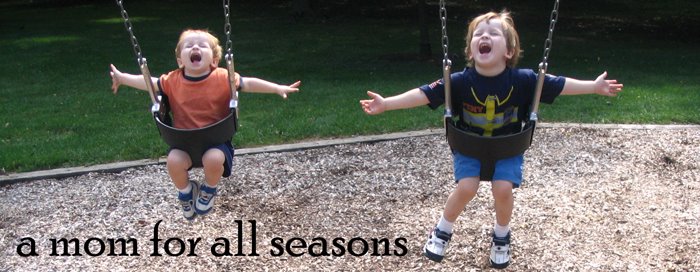One of our local news sources posted a topic for discussion on its facebook page yesterday.
YOUR TURN: Research shows that putting your child into "time out" can hurt them down the road. Instead, parents are urged to coach children through arguments. This will teach kids how to talk through problems and help relationships. What do you think? How do you get your kids to get along?
The 56 comments that followed basically concluded that not only should very punitive time-outs be used to control our children but we all should really just beat children to get them to behave appropriately.
I was shocked, to say the the least. As I read comment after comment, I got more angry. At one point, I thought, maybe I missed something and this is a joke or a test of my profession and parenting. Not one comment suggested anything else. Although I did resist, I had to comment as the voice of reason:
"honestly, I am SHOCKED by these comments. I am a parent and teacher I never use time out. I help kids learn about their emotions and how to express them, give them the tools to cope with themselves and others, and know when to ask for help. Each child is different and needs different things to deal with the world around them."
This, of course, was followed by lots of rude comments that that was ridiculous. My favorite was one person said that the only reason I don't hit my students is because the government doesn't allow me too. I am staying out of it now but I will continue here.
This is a very important issue to understand as a parent and a professional who works with any other human being, really. Actually, I don't even like to use the word 'discipline'. It gives off a very negative and punishing vibe. It also is often limited to isolated, reactive incidents. I do not discipline my children. Just as my course in college did, I prefer 'guidance.' Think about it...everything we, as adults, do guide the children into making their decisions. We are their guides in this strange world they live in, especially as they discover new things and relationships.
I am extremely proactive and emotion-based in my guidance with children. I also try to help them internalize the behavior so that children really make clear connections between thoughts, actions, and consequences (whether positive or negative). I think about it as giving them a tool box or magic kit. I talk, talk, and talk to children about everything and anything including emotions. I always find it interesting that children will know their ABC's but can't identify their own basic feelings. We learn about their own emotions and how to read others' emotions throughout the day (not just when an incident is happening). Once one can identify how they are feeling, you can give them to tools to cope with that emotion.
One of these tools is 'time out'. But not the 'sit in a corner with your head between your legs for an inappropriate amount of time time-out' but a break. This is an extremely useful tool for all ages....walk away, take a breathe, decide what you need to move on, ask for what you need.
Another tool is simple communication...if you are angry with someone, tell them. If you want something, ask for it. If you are happy, let someone know why.
Finally, let children know that things might not always go the way they want. If they ask for a toy, the other child can say no. You may have to wait awhile for a turn. Mom might not let you have another cookie. It might rain and you can't go to the pool. These events might make you angry or disappointed but that is the way it is right now. Give them ideas on things to do to feel better when disappointment sets in (read, draw, jump up and down, run around the house, playdough, watch your favorite show, listen to music....).
You also need to be role model. Use this method for yourself. You will hear me say the oddest things sometimes like "I really don't like when you lick my leg, it makes me feel gross." Or "I need a minute alone to feel better."
I have worked with a lot of children. A lot of different children including those with severe behavior disorders, autism, sensory integration, and children of all ages. Different children need different things to understand themselves and need different tricks in their hats to feel right. But, this works, it really does. This will empower children and make them better adults later in the life.
Tuesday, July 20, 2010
Subscribe to:
Post Comments (Atom)

1 comment:
Go Jenna!
Post a Comment